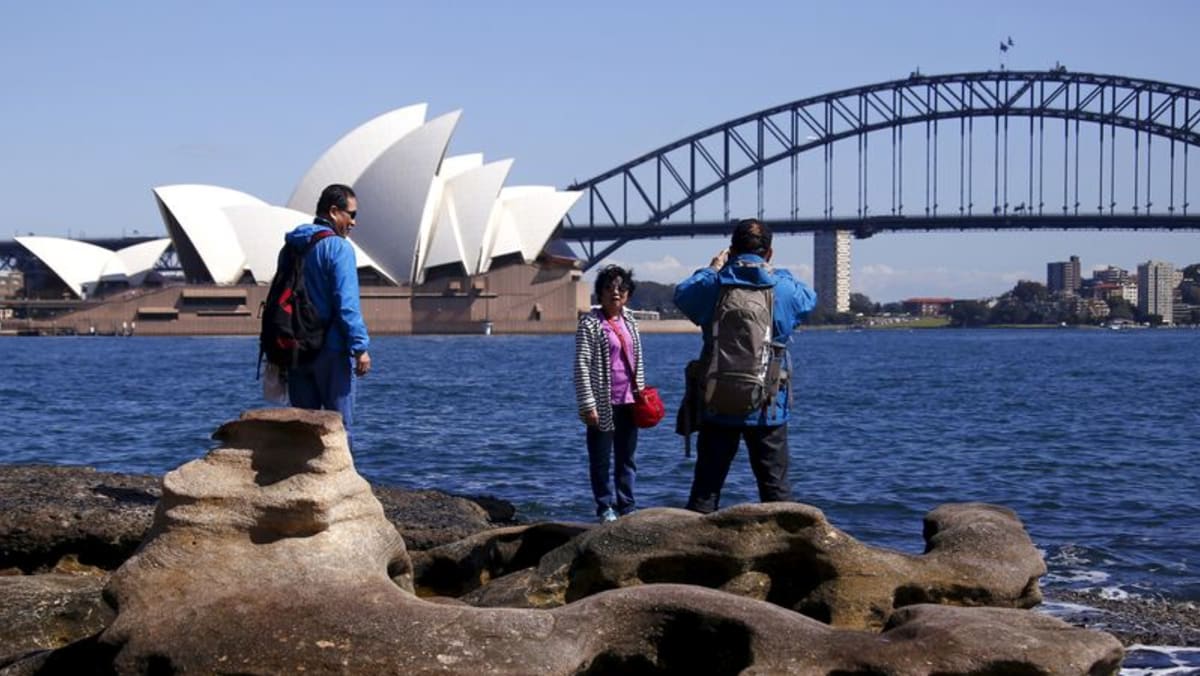
SYDNEY: When China ended a lengthy border closure in January, e-commerce marketer Tianni Ren immediately began planning a team building trip for her 14 staff to Australia, hoping to see its stunning pink salt lakes that had captivated her on social media.
But instead she took her colleagues from the city of Hangzhou to New Zealand after learning Australia was cut from a list of destinations approved by Beijing for group overseas travel, effectively halting a two-decade programme that had helped China dominate Australia's A$45 billion (US$30 billion) international tourism market until early 2020.
"We asked our tour agent but were told that Australia was not on the group tour list," said Ren, 28, referring to the Approved Destination Status (ADS) that China gives some 60 other countries. "It is a pity that we did not get to see the pink lakes."
After three years of struggle and anticipation, the widely expected wave of returning Chinese tourists Down Under has turned out to be a trickle as the visa rules - coupled with relatively high costs, a lack of flights and an exodus of Mandarin-speaking guides - squeeze Australia's fourth-largest export industry.
In February, the first full month since China's border reopened, Australia recorded 40,430 short-term visitors from China, government data showed. That was one-fifth the number who visited in the same month in the record year of 2019 and well behind visits from New Zealand, the UK and the US.
Flights from mainland China to Australia, meanwhile were just one-fifth of pre-pandemic capacity in February, according to aviation analytics firm Cirium, as soaring fuel costs jacked up fares and dented demand.
At the same time, total Chinese outbound border crossings had reached two-thirds of pre-pandemic levels, according to the Chinese Outbound Tourism Research Institute, a consulting group based in Germany.
Beijing did not give a reason for ending Australia's ADS status, but travel industry participants say geopolitics has played a role, with relations at a low ebb amid trade disputes and increasingly strident security rhetoric between the West and China.
Government marketing body Tourism Australia declined to comment.
Trade promotion office Austrade said Tourism Australia's managing director visited China in March to meet strategic partners such as airlines and the body would "continue to work closely with its key distribution partners in the market to realise tourism opportunities between Australia and China".
"It's definitely tied up in geopolitics and trade and other things where we've seen a decline. You can't disentangle that from the current situation," said Paul Stolk, a lecturer at University of Newcastle business school who is working on a university-government collaboration to diversify the tourism sector.
In addition, Chinese travellers often choose destinations where family members are studying abroad, Stolk added. China was Australia's biggest source of foreign students until 2019, but students of other nationalities have filled its foreign student ranks since Australia reopened its border in 2021.
https://news.google.com/rss/articles/CBMieGh0dHBzOi8vd3d3LmNoYW5uZWxuZXdzYXNpYS5jb20vYnVzaW5lc3MvZ3JlYXQtc2hvcnRmYWxsLWNoaW5hLWF1c3RyYWxpYXMtYmlnZ2VzdC10b3VyaXNtLW1hcmtldC1yZXR1cm5zLXdoaW1wZXItMzQyMjE2NtIBAA?oc=5
2023-04-16 23:42:46Z
CBMieGh0dHBzOi8vd3d3LmNoYW5uZWxuZXdzYXNpYS5jb20vYnVzaW5lc3MvZ3JlYXQtc2hvcnRmYWxsLWNoaW5hLWF1c3RyYWxpYXMtYmlnZ2VzdC10b3VyaXNtLW1hcmtldC1yZXR1cm5zLXdoaW1wZXItMzQyMjE2NtIBAA
Tidak ada komentar:
Posting Komentar